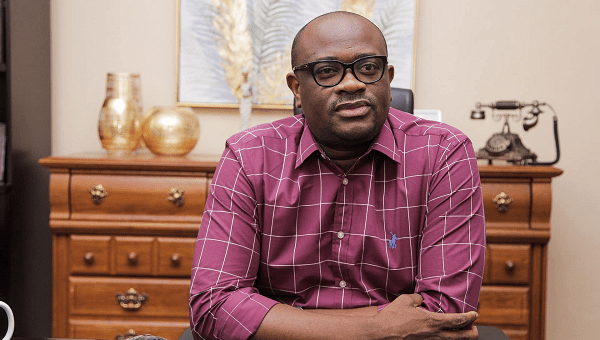Top aide to former president John Mahama, Stan Dogbe says he never smashed the recorder of fellow journalist from the radio wing of the Ghana Broadcasting Corporation, Yahaya Kwamoah.
In 2015, a senior journalist from the Ghanaian TImes with the Presidential Press Corps was involved in a car accident and was sent to 37 Military Hospital in Accra. The journalist, Samuel (Sammy) Noumah did not make it.
At the hospital, Stan Dogbe was reported to have smashed Mr Kwamoah’s recorder after he suspected the journalist was secretly recording a private conversation between him and his fellow government officials.
Stan Dogbe quashed this claim on the Super Morning Show, Thursday in a response to a question asked by a listener.
For the first time, he gave his side of what happened on that day.
“Sometimes the narratives become a little troubling. People pick it up and give it all types of reasons and all that.
I apologise to my colleague from GBC for that incident at 37. It was a very troubling day, after all, that had happened, the stress I had to go through with my colleagues to prevent my own colleague journalists from filming the colleagues who were injured, looking dirty and all that.
I had sent for my wife’s clothing to be brought to the female journalists and brought my own shirts for them so that they can all change, clean up and freshen up before people can see them.
All the journalists thought was to film them with the blood on themselves, and I thought it was quite disappointing. I think there was one elderly journalist who I told I thought you were somebody who should be helping me to get the others to know that ‘listen, the people are injured, let them be treated, so that you can go and talk to them. Not in the blood, etc.
We had lost painfully, one of our colleagues and the family had been invited over and they didn’t know at the time that that was the case. We needed to inform them about it.
So when they came we were standing somewhere and there were a few other journalists; Maxwell Okamafuor, and others and we were all standing there. We said we’re going to talk to these guys when they come.
When we started the conversation, Dr Omane Boamah, Angola and a few others, I noticed two people and I asked Sammy’s brother, ‘Are they with you?’ he said no.
Angola asked them ‘since we are having a private conversation can they excuse us? Then they walked back a little.
In that state the issues are not something you just go and break the story. Then Angola signalled me again and said somebody else has come here. So I turned, and the man, I noticed he was holding something that was blinking with the colour red and I said, Angola, the person is recording.
To be honest at the time, I couldn’t even tell he was a journalist because all the other journalists are standing with us. We were in front of the emergency ward and we were just waiting for us to finish. So Angola went to him and said, ‘ah why are you recording us?’ and he said he wasn’t recording us and I said he was.
So I turned and went to him, ‘but why are you recording?’ and took the recorder, and said ‘but this is the recorder?’
To be honest, i said ‘why do you guys do this? I just took the recorder and dropped it, I never smashed it. I didn’t touch the gentleman, I didn’t hold him, I didn’t know who he was. It was not until we had finished with Sammy’s family and co before Maxwell said the guy was from GBC radio and they were even asking him, ‘we were all standing here, so if you have come, why didn’t you come and join us, why did you go there and you are secretly recording?’
Our job is to look for information no matter what but if you are recording me without my knowledge and I also find out I have to stop you from doing that. So I dropped the recorder, I never smashed it. I never hit it with a stone, I never assaulted the gentleman but of course, once the story came out, other parts of the story coming out and how it was portrayed and the role of the Media Foundation for West Africa, the people who were paid by some people to raise petitions against Stan Dogbe, it happened.
But for me, what was important was that this is somebody you have found out was a colleague journalist, whether what he did was right or wrong, to be fair to him, he didn’t make any upheaval fuss about it. It was people rather who reacted.
I apologised to him, I apologised to the GJA President as well. I bought a new recorder to replace what he had at the time. But it didn’t stop that narrative from going on and on.”































